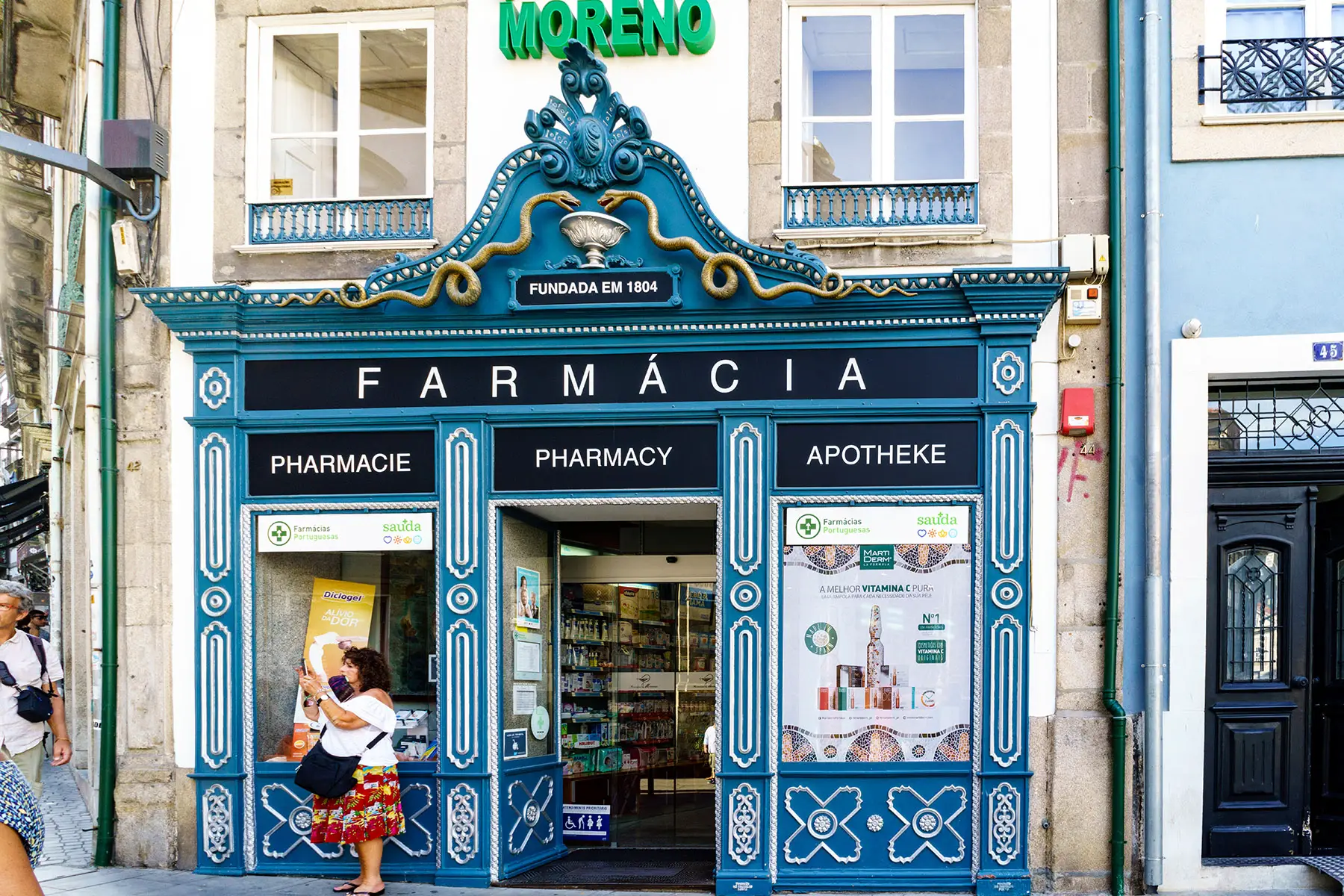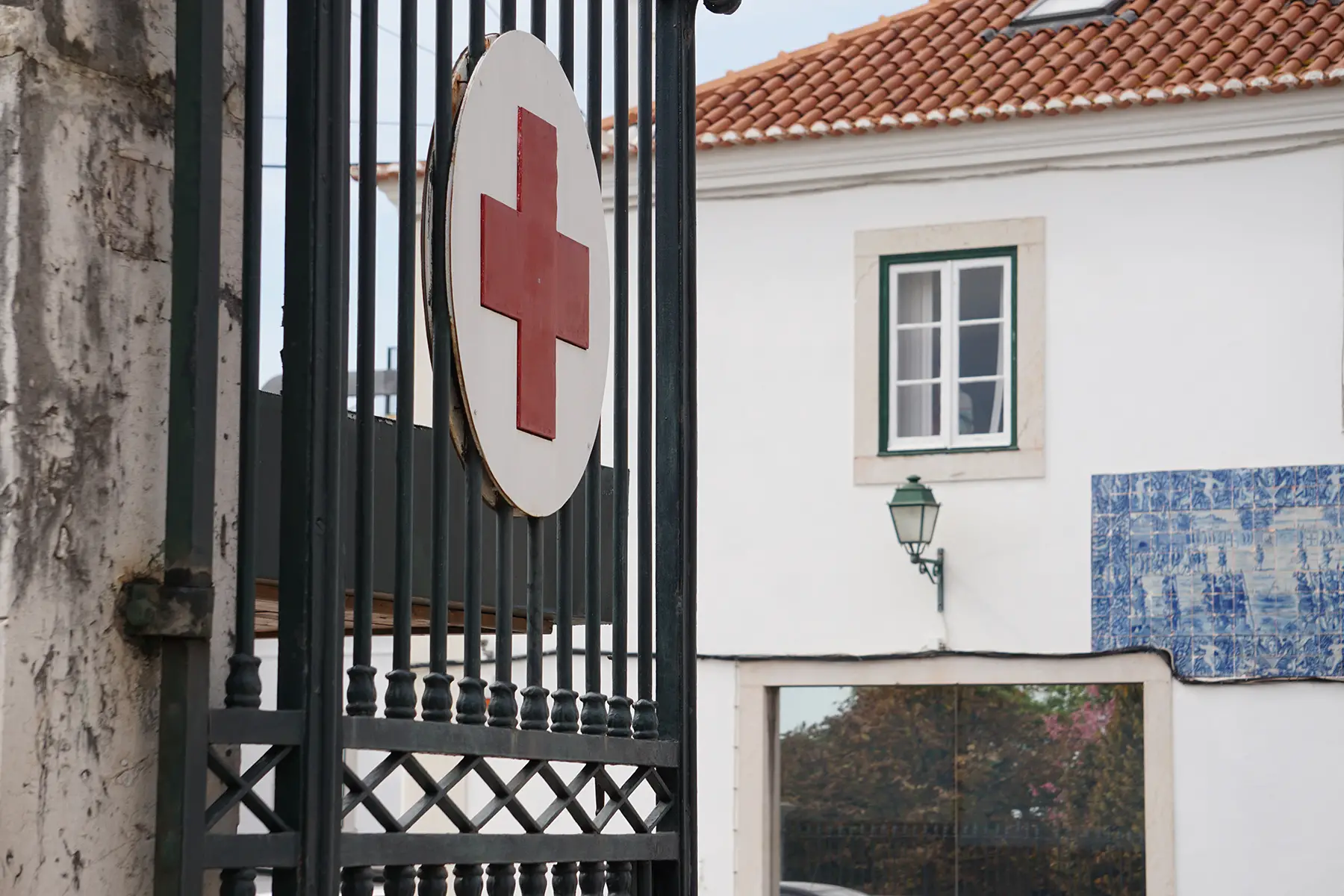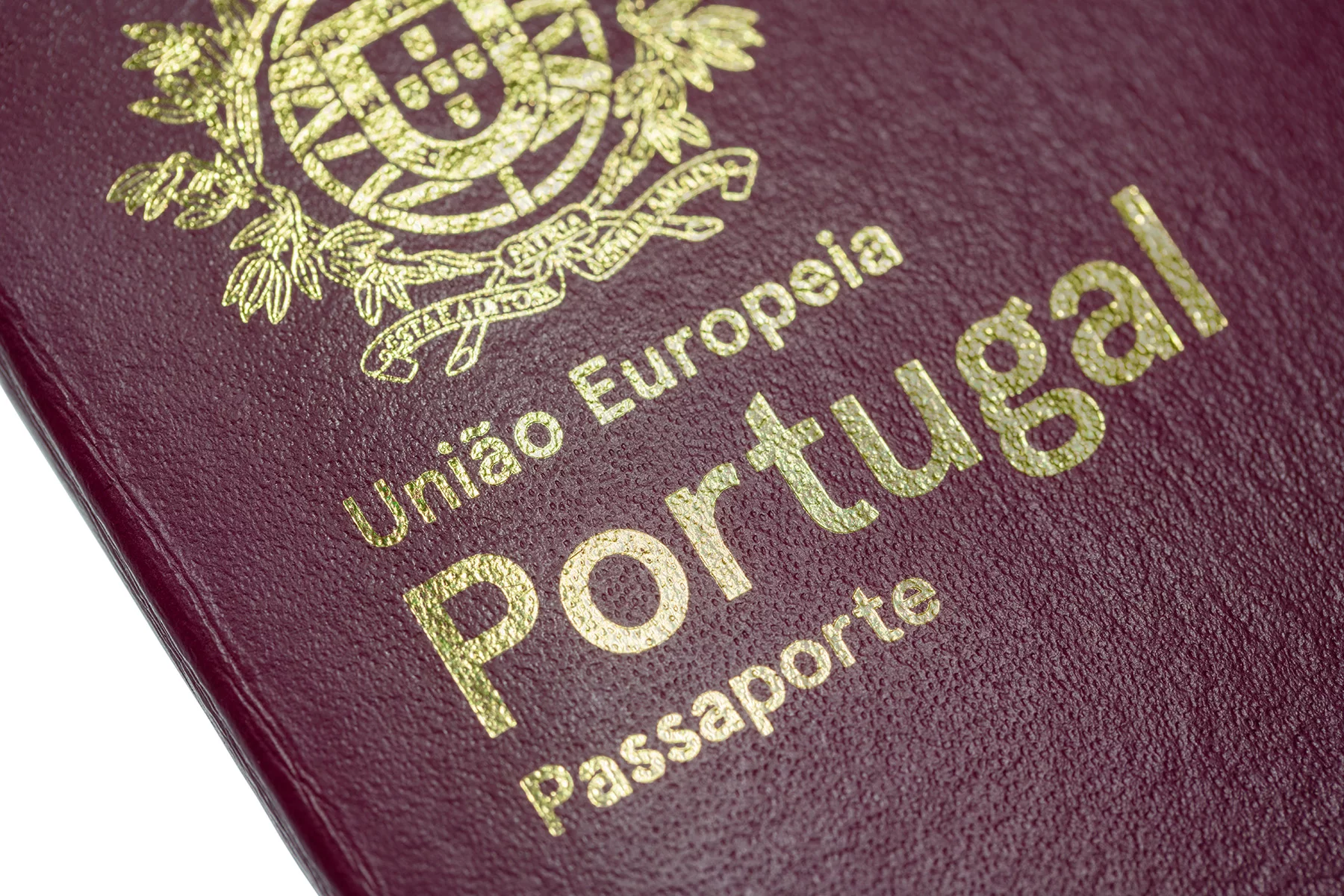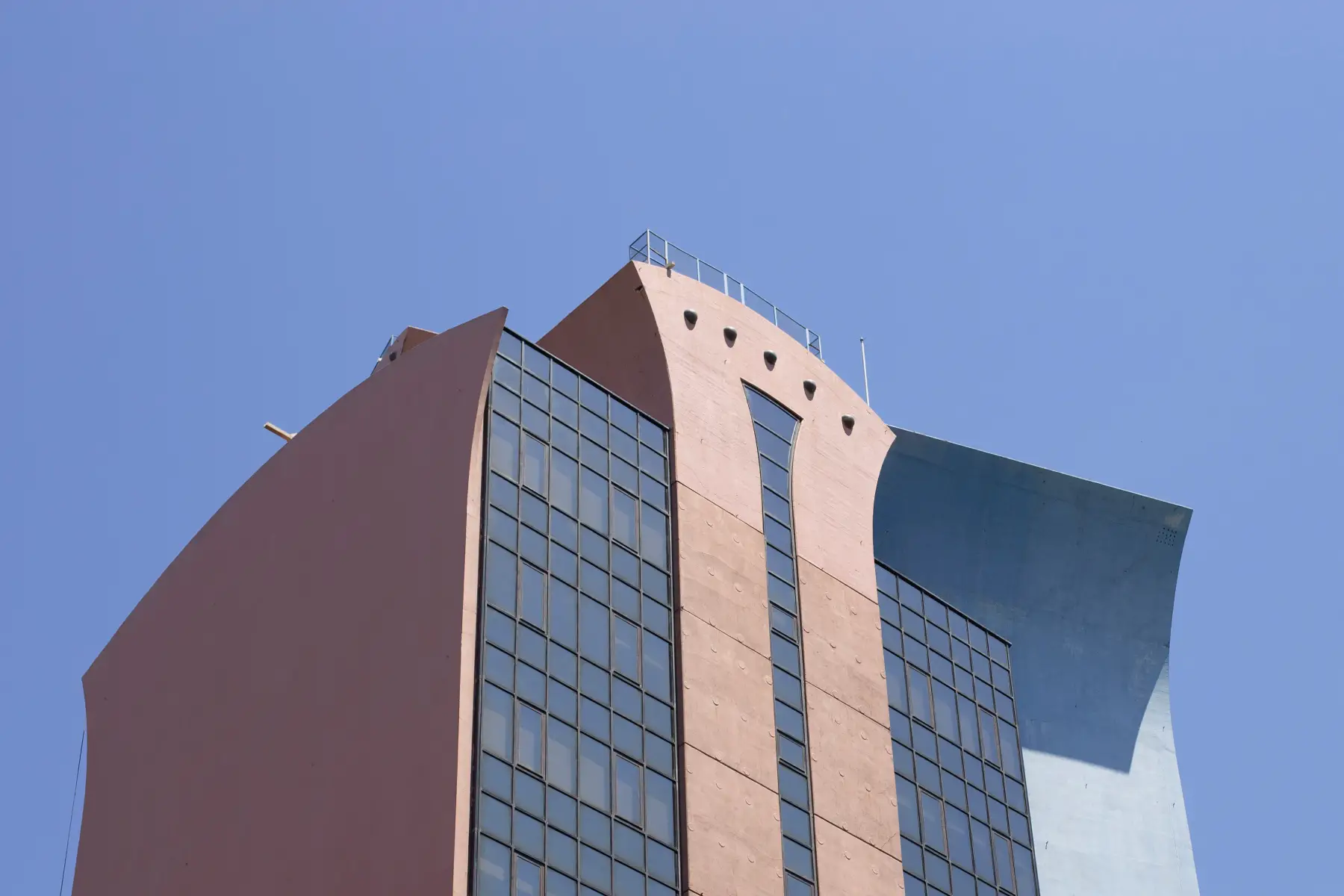If you’re planning on having a baby in Portugal, then rest assured; the Portuguese healthcare system is the 5th best in Europe in the 2025 Euro Health Consumer Index. Portugal has one of the lowest national fertility rates in the world at 1.43 births per woman in 2022. The country also has the second-lowest birth rate in Europe in 2023, making it an attractive country for expectant parents.
Portugal has a publicly-funded national health service, called the Serviço Nacional de Saúde (SNS). Legal residents can claim many childcare benefits and maternity care under the Portuguese healthcare system and social security system.
This guide will help explain what to expect when you’re expecting in Portugal:
- Pregnancy and childbirth in Portugal
- Accessing maternity services in Portugal
- Insurance for maternity costs in Portugal
- Pregnancy testing in Portugal
- Prenatal care in Portugal
- Giving birth in Portugal
- Postnatal care in Portugal
- Registration of birth
- Parental leave in Portugal
- Child benefits in Portugal
- Useful resources
Cigna Global
Expecting a baby in Portugal? Enjoy peace of mind with Cigna Global’s private healthcare. Gain access to top maternity care, pediatricians, specialists, and a global network tailor-made for your growing family. Start your parenting journey with confidence – Cigna Global has you covered.
Pregnancy and childbirth in Portugal
Maternity care in Portugal is available free or at a low cost for those who contribute towards social security. Dependent family members are also eligible for this care.

In Portugal, you can choose to have your baby in either a public or private hospital maternity ward. You can also opt to have a midwife present at the time of birth. The Portuguese national healthcare system covers maternity care. In general, you’re free to choose the public hospital you prefer; otherwise, you can visit a public hospital in your area unless another is requested by your practitioner. You may also choose for private healthcare (if you have coverage) at one of the following private maternity hospitals:
Accessing maternity services in Portugal
If you’re planning on giving birth in Portugal, make sure that you’re registered at a local health center (centro de saúde); this is necessary to access doctor and midwife services.
Read our guide to healthcare in Portugal for detailed information and conditions for joining the Portuguese healthcare system.
Insurance for maternity costs in Portugal
Public health insurance covers most of the costs of having a baby in Portugal. This insurance is available to residents who are eligible for Portuguese social security. You may need or want to take out private health insurance to cover childbirth costs in Portugal. This is if you’re not yet eligible to join the SNS, or if you would enjoy some of the extra perks afforded by private coverage, such as private rooms and more comprehensive pre- and post-natal care.
For expats, the following international companies provide maternity coverage:
Pregnancy testing in Portugal
If you think you may be pregnant, you can go to any pharmacy in Portugal and buy a pregnancy test (teste de gravidez). You can also visit a local health center (centro de saúde) for a blood test.
Prenatal care in Portugal
After registering with a health center, you can benefit from prenatal care through the public healthcare system. Health centers primarily carry out these appointments; however, public hospitals also provide them during the last few weeks of pregnancy. The doctors at a health center can also refer you to a gynecologist, who can provide support during the pregnancy and help you find a midwife.
Medical examinations are free if you are a resident in Portugal. However, prenatal care classes typically have to be paid for.
You should book your first prenatal appointment as soon as possible; before the first 12 weeks of pregnancy is ideal. Generally speaking, appointments will take place every four to six weeks (until the 30th week); every two to three weeks (between the 30th and 36th week); and every one to two weeks (between the 36th week and the birth).
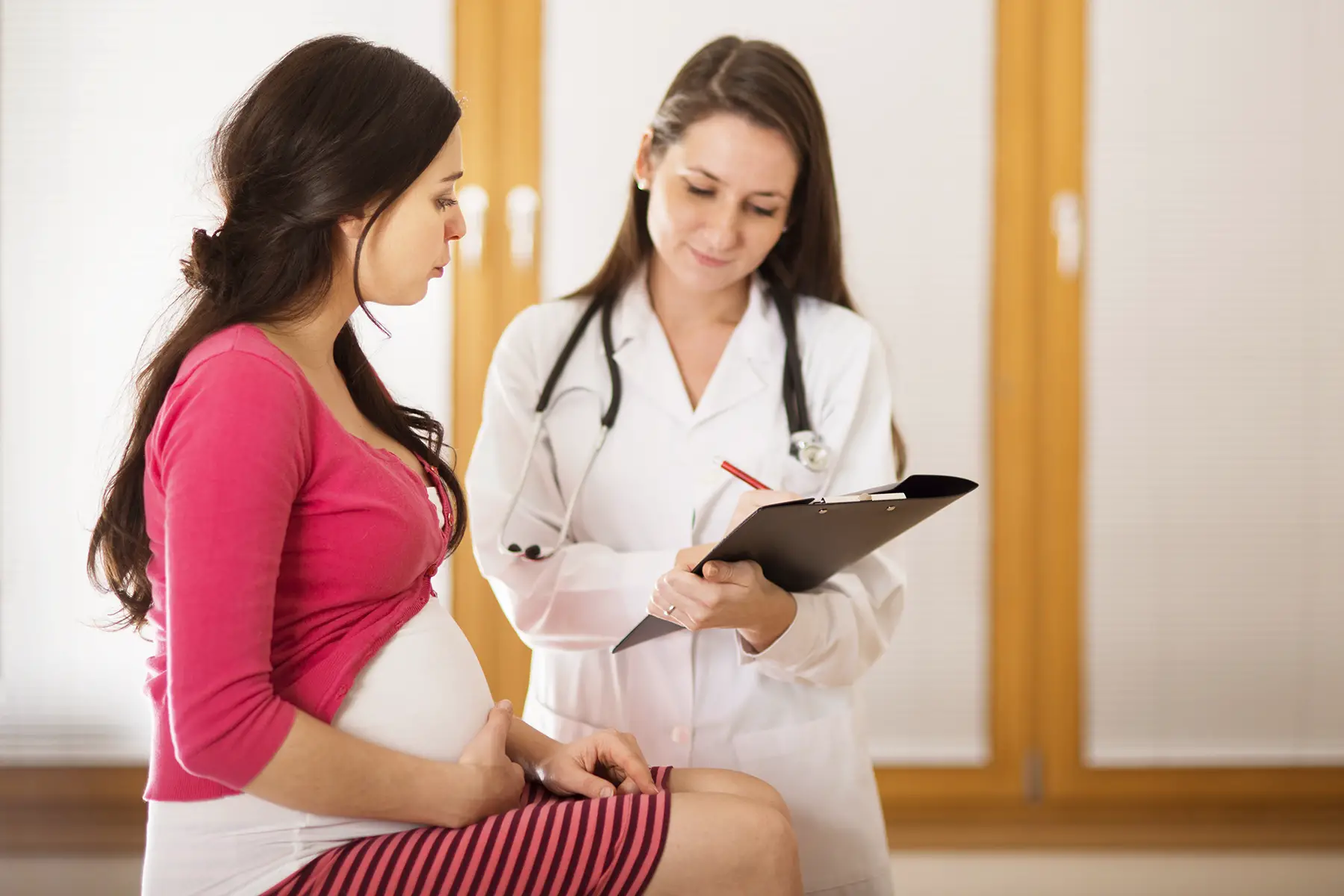
After first recording the pregnancy, you’ll receive a pregnancy booklet (Boletim de Saúde da Grávida). In this booklet, your doctor or gynecologist records medical information as the pregnancy progresses. You should also take this with you to the hospital when you give birth.
Many medical staff speak at least some English, but don’t rely on this. Instead, take someone with you who can translate, or learn some basic Portuguese in order to help you.
You can also opt for the services of a doula, who provide advice and emotional support. However, doulas are not health professionals. As a result, they may not be allowed to enter the birthing room. You can find a doula in your region through Doular.
Read more in our guides on how to register with doctors in Portugal and how to choose a hospital in Portugal.
Scans, tests, and checks
During your prenatal appointments, you and your baby’s general health will be checked. Your blood pressure, weight, urine, and nutritional condition will be tested regularly. You can also expect to have gynecological exams, sonars, and an analysis of the baby’s heart rate. You will also have an ultrasound scan every trimester of your pregnancy.
Portugal has a National Vaccination Plan (Plano Nacional de Vacinação) which is free and available to everyone. Read our guide to vaccinations in Portugal to learn more about what vaccinations you can expect to have during your pregnancy.
Antenatal classes
Antenatal classes are available in both the private and public sectors, and mostly in hospitals. These classes usually give you detailed information about pregnancy and giving birth. They’ll help you make this new adventure a more stress-free experience.
There are some prenatal and postnatal care and classes at Portuguese health centers. However, there are not many options available; check with your local health center to see what they provide. Prenatal classes are not usually subsidized; contributions are necessary for any medication.
Giving birth in Portugal
Most births in Portugal take place in the maternity ward of a hospital. Home births are fairly rare and not available through the public healthcare system, although there is a growing interest in alternative birthing options. You are free to choose your own midwife to assist in a home birth.
Always keep your Boletim de Saúde da Grávida with you when you arrive at the medical facility where you are going to give birth. Once there, a midwife may assist the doctor with the delivery, and one other person is generally allowed in the room when you give birth. If you want an epidural, express your choice beforehand. Once you’ve given birth, the baby is weighed and its health is checked, and any illnesses or defects are recorded.

Mothers and babies generally have to stay around two days in the hospital after birth. This increases to three if the mother has undergone a C-section.
Public health insurance covers the costs for delivering a baby in Portugal. If you are from a country in the European Union (EU), the European Economic Area (EEA), or Switzerland, and are a resident in Portugal, you can use the European Health Insurance Card (EHIC) to travel to your home country to give birth if you’ve made sufficient social security contributions.
Postnatal care in Portugal
Once you register your baby at a Portuguese health center, healthcare staff set up medical records for documenting all vaccinations and health checks. You will receive a booklet recording all past appointments and ones that you need to attend, along with some more information and a hospital release form.
A few days after you have left the hospital, a nurse will come to check on you and the baby.
If you wish to join postnatal (pós-parto) classes, you can contact your health center directly to know what they offer and at what cost. External institutions also provide postnatal classes.
Vaccinations for children
Portugal has a national vaccination program through the Ministry of Health. The program includes vaccinations at regular intervals up until 18 months and then at five to six years and 10–13 years.
The national vaccine program protects against the following diseases: tuberculosis, diphtheria, tetanus, pertussis, poliomyelitis, Haemophilus influenza type b infection, hepatitis B, pneumococcal disease, meningococcal disease, measles, mumps, rubella, and human papillomavirus infection.
Read our guide to vaccinations in Portugal for more information.
Nurseries and childcare
Nurseries and childcare centers are not very common in Portugal. As a result, family members or babysitters tend to look after children under the age of three. However, there is a range of crèches, childcare centers, nurseries, and kindergartens available in most cities. Read our guide to childcare in Portugal for more information.
Breastfeeding in Portugal
In the past, some expats have complained that attitudes towards issues such as breastfeeding versus the use of formula are a bit outdated in Portugal. A few years ago, a World Breastfeeding Trends Initiative (WBTi) report showed that the country was lagging behind and that exclusive breastfeeding rates for the first six months (as recommended by the World Health Organization) were still low in Portugal. In addition, only 15 hospitals and one group of centros de saúde are currently certified Amigos dos Bebés (baby and breastfeeding-friendly).
In 2017, however, a new report showed that over the last twenty years, exclusive breastfeeding rates up to three or four months nearly doubled in Portugal. This led to improved maternity pay regulations. Maternity leave in Portugal with 100% salary is currently four months (120 days) with the possibility to extend it by an extra 30 days. The mother receives only 80% of her gross salary during this additional month.
Registration of birth
Babies born in Portugal need to be registered within 20 days at the Portuguese Civil Registry Office; and you can find the closest office online. This can also be done (free of charge) via a government program called Nascer Cidadao at the hospital maternity ward where your child was born.
To register your baby in Portugal, you will need to have the following documents:
- ID or passports of the parents
- a birth certificate issued by the maternity ward or place where the birth took place
A number of people are able to register the birth of a child. These include the parents, a close relative, a legal representative of the parents, or an appointed staff member at the place of birth.
Interestingly, the complete name of a baby born in Portugal cannot exceed six individual names. In addition, if one of the parents is Portuguese and you wish to give your baby a non-Portuguese Christian name, you might be asked to prove that this name is accepted in your country of origin.
Non-residents, visitors, and tourists giving birth in Portugal
If you are a non-resident having a baby in Portugal, then you’ll need to take out international or private health insurance to cover the costs.
See our guide to health insurance in Portugal for more information, as well as our health insurance quotes page.
Cigna Global
Expecting a baby in Portugal? Enjoy peace of mind with Cigna Global’s private healthcare. Gain access to top maternity care, pediatricians, specialists, and a global network tailor-made for your growing family. Start your parenting journey with confidence – Cigna Global has you covered.
Will your child get Portuguese citizenship?
A child born in Portugal automatically acquires Portuguese citizenship if at least one parent was born in Portugal. They will also get automatic citizenship if they don’t possess any other nationality through their parents, or if at least one parent has lived in Portugal for five years at the time of their birth. Read our guide to Portuguese citizenship for more information.
Parental leave in Portugal
New mothers are entitled to maternity leave in Portugal at 100% of their pay for 120 consecutive days. They can take a maximum of 30 of these days before the baby’s birth and they must take at least 42 days of leave (six weeks) after birth.
Maternity leave in Portugal can be extended by 30 days to 150 days at full pay if:
- The leave after the mandatory 42 days post-birth has been shared between both parents. The additional 30-day period can be taken by both parents.
- The mother gives birth to twins. Mothers receive an extra 30 days for each additional birth (e.g., 180 days for triplets, 210 for quadruplets).
There are also two additional options for taking parental leave in Portugal:
- The parental leave period can be extended to 180 days, shared between both parents at a rate of 83% of total pay.
- Maternity leave can be extended to 150 days with no shared period at a rate of 80% total pay.
To be entitled to parental leave in Portugal, you must have worked and made at least six months of social security contributions by the time of your claim. Applications for maternity and paternity benefits in Portugal can be made at a local Social Security office or at a citizen’s shop.
Parental social allowance is also available to those out of work or who have not made enough contributions to be entitled to maternity leave in Portugal. The entitlement period is the same as for standard maternity benefit, but is set at rates of 80%, 66%, and 64% of the Index of Social Support (€435.76 in 2019).
Paternity leave in Portugal
Paternity leave in Portugal is allowed for working fathers for five consecutive days after the birth of the baby, plus an additional 10 days within 30 days of the birth, which do not need to be consecutive. After this period, a father has the option to take leave for an additional 10 consecutive days within the period that the mother is on maternity leave. If twins are born, an additional two days are added to each period for each child.

However, a new father may have the same leave rights as a mother in certain cases such as the death of the mother, physical or psychological incapability of the mother, a shared decision by both partners to switch roles in taking care of the baby, or in cases where the mother does not claim any maternity benefits.
Read more about the conditions for family benefits in Portugal, or consult the Portuguese Social Security (Seguranca Social) for information.
Child benefits in Portugal
Pregnant women in Portugal receive a prenatal family allowance starting in the 13th week of pregnancy, lasting for up to six months. The allowance is means-tested and paid only to residents whose earnings and movable assets are below a certain threshold. The weekly amount varies according to income; currently, it’s between €86.53 and €756.82.
Other child benefits in Portugal include a family allowance for children and young people up to 16 years old, maternity and paternity benefits, adoption grant benefits for the care of ill or disabled children, benefits for particular risks during pregnancy, and benefits for special leave for grandparents.
For more details about how and where to apply for these benefits, check the Social Security website. You can fill in the form for family allowance for children and young people online and send it directly to the Social Security.
This guide to maternity benefits in Portugal provides more information on the eligibility criteria and duration of these benefits.
Useful resources
For more information about giving birth in Portugal, refer to this list of links below:

